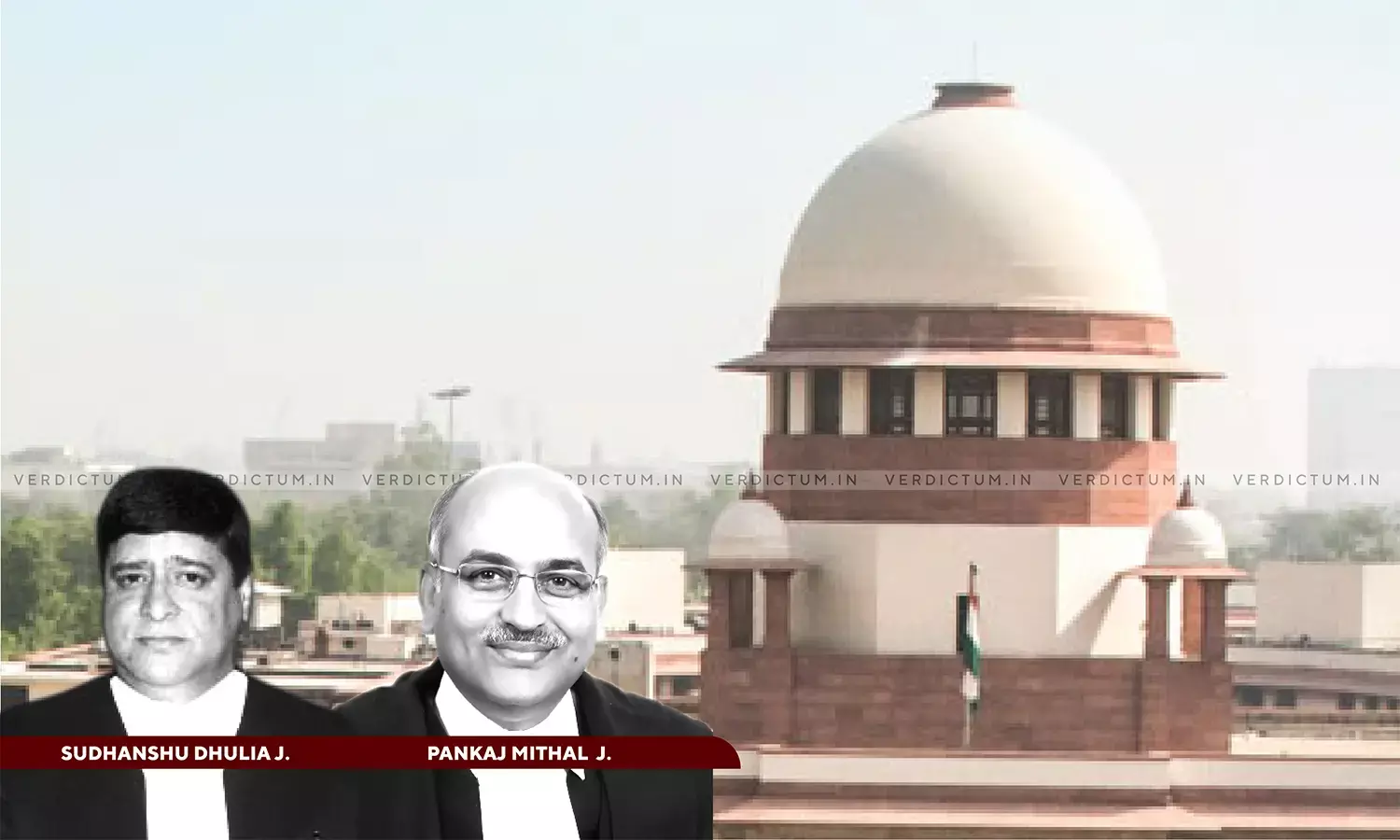Co-Owner Cannot Transfer Entire Joint Property Without Getting His Share Determined & Demarcated: Supreme Court
The Supreme Court has held that a co-owner of a non-partitioned property cannot transfer the entire property without getting his share determined and demarcated to bind the other co-owners.
The Court dismissed the appeal of the appellant, a tenant to whom one of the co-owners sold the undivided property. The Court upheld the decision of the High Court, which restrained the appellant by the decree of injunction in acting in derogation of the propriety rights of the co-owners until and unless the partition takes place.
A Bench of Justice Sudhanshu Dhulia and Justice Pankaj Mithal observed, “The point for determination formulated in paragraph 12 above is accordingly answered and it is held that Brij Mohan alone was not competent to transfer the entire property without getting his share determined and demarcated so as to bind the other co-owners. Accordingly, the defendant-appellant S.K. Golam Lalchand has rightly been restrained by the decree of injunction in acting in derogation of the propriety rights of the co-owners until and unless the partition takes place.”
Senior Advocate Rauf Rahim represented the appellant, while Senior Advocate Pijush K. Roy appeared for the respondents.
The property was originally purchased in 1959 by two brothers. Following their death, a dispute arose regarding the ownership rights of the property among the respective heirs of the brothers.
The respondent, a co-owner, filed a suit challenging the sale of the property executed by another co-owner in favour of the appellant. The respondent argued that his father had never relinquished his share in the property to his brother. Therefore, he submitted that the co-owner had no exclusive rights to transfer the entire property to the appellant. The plaintiff sought a declaration and permanent injunction claiming that the appellant could not have acquired any right, title and interest in the suit property by virtue of any sale deed.
The Trial Court had dismissed the suit of the respondent recording that the suit property was never partitioned as the appellant had not produced any cogent material on record to prove the partition meaning thereby the property continued to be a joint property.
The family settlement on the basis of which partition or settlement is being claimed was never produced in evidence and proved.
The Supreme Court stated that the co-owner alone was not competent to execute a sale of the entire property in favour of the appellant that too without its partition.
“The said sale deed, if at all, in accordance with Section 44 of the Transfer of Property Act, 1882 may be a valid document to the extent of the share of Brij Mohan in the property and defendantappellant S.K. Golam Lalchand is free to take remedies to claim appropriate relief either by suit of partition or by suit of compensation and damages against Brij Mohan,” the Bench remarked.
Consequently, the Court held, “The suit property which is undivided is left with the co-owners to proceed in accordance with law to get their shares determined and demarcated before making a transfer.”
Accordingly, the Supreme Court dismissed the appeal.
Cause Title: S.K. Golam Lalchand v. Nandu Lal Shaw @ Nand Lal Keshri @ Nandu Lal Bayes & Ors. (Neutral Citation: 2024 INSC 676)
Appearance:
Appellant: Senior Advocate Rauf Rahim; Advocates Ankita Gupta and Ali Asghar Rahim; AOR Shekhar Kumar
Respondents: Senior Advocate Pijush K. Roy; AOR Rajan K. Chourasia; Advocate Kakali Roy












